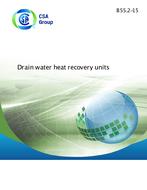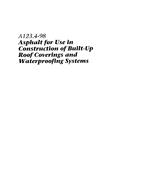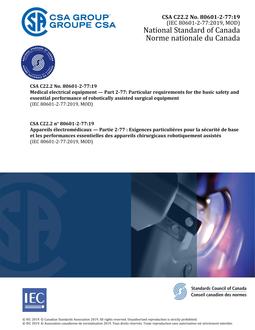Click here to purchase
This is the seventh edition of CSA C22.2 No. 68, Motor-operated appliances (household and commercial). It is one of a series of Standards issued by the Canadian Standards Association under Part II of the Canadian Electrical Code. It supersedes the previous editions, published in 1992, 1989, 1981, 1976, 1962, and 1942.
Scope
1.1
This Standard applies to motor-operated appliances* intended for use with nominal system voltages of 600 V and less, except that where appliances are driven by universal-type motors or electromagnetic mechanisms, the scope is limited to appliances rated for use on nominal system voltages of 240 V or less.This Standard applies to appliances designed to be used in accordance with the Rules of the Canadian Electrical Code,Part I.*For convenience, the term “appliance” or “equipment” is used in this Standard.
1.2
This Standard applies to permanently connected and cord-connected appliances for household and commercial use in non-hazardous locations.Note: The products covered by this Standard include shaving and massage appliances, hair clippers, sewing machines, automotive servicing equipment, air compressors, car wash equipment, chairs, beds, exercise appliances, paint sprayers, paint rollers, parts cleaners, household trash compactors, food-waste disposers, barbecue motors, hand-held engravers, and similar equipment.
1.3
This Standard applies to sprayers intended for extensive open spraying of cleaning fluids, paint, insecticides, and similar liquids having a flashpoint higher than 60 °C, but excluding electrostatic sprayers and sprayers for use in spray booths or in other areas where hazardous concentrations of flammablevapours are likely to be present.
1.4
Automotive equipment covered by this Standard, such as wheel aligners, engine timing lights, and analyzers, might or might not have motors.
1.5
Requirements for cord-connected double-insulated appliances are specified in Clause 8.
1.6
This Standard does not include requirements for equipment covered by a specific Standard under the Canadian Electrical Code, Part II (e.g., drafting tables, pencil sharpeners).
1.7
In CSA Standards, “shall” is used to express a requirement, i.e., a provision that the user is obliged to satisfy in order to comply with the standard; “should” is used to express a recommendation or that which is advised but not required; “may” is used to express an option or that which is permissible within the limits of the standard; and “can” is used to express possibility or capability. Notes accompanying clauses do not include requirements or alternative requirements; the purpose of a note accompanying a clause is to separate from the text explanatory or informative material. Notes to tables and figures are considered part of the table or figure and may be written as requirements. Annexes are designated normative (mandatory) or informative (non-mandatory) to define their application.
Product Details
- Published:
- 09/01/2009
- ISBN(s):
- 9781554912964
- Number of Pages:
- 84
- File Size:
- 1 file , 1.8 MB
- Product Code(s):
- 2420288, 2420288


